Advertising Disclosure
Introduction
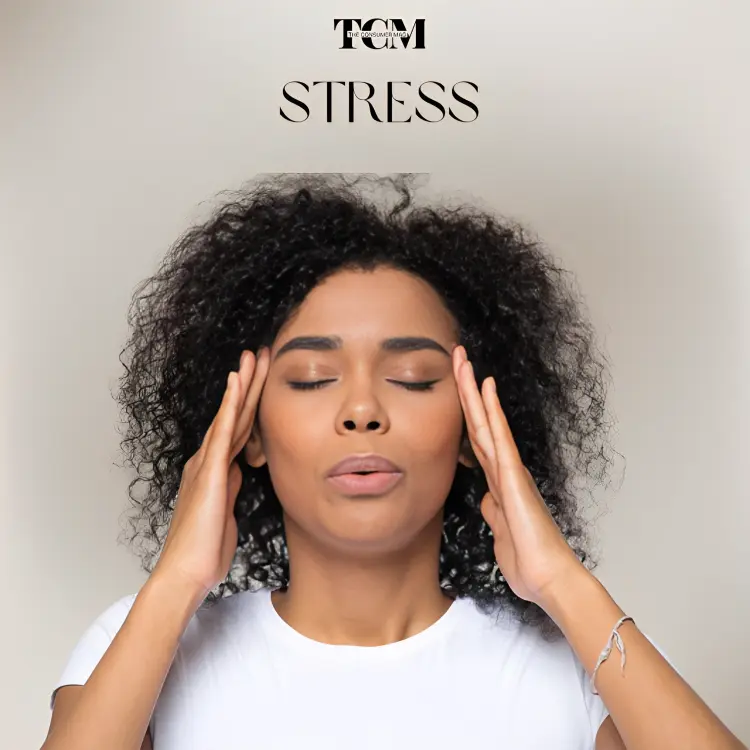
Stress is a reaction when our body faces a threat, psychologically or physiologically.
When talking about stress, it is assumed that the only cure is to reduce tension and worry.
But truly, there are various ways to cope with stress.
Stress is a chemical bustle inside our body, so one way of dealing with stress is to reduce the worry and tension building up in your atmosphere.
But on the other hand, another form of stress relief is consuming vitamins that can balance your chemical equation and indirectly reduce the stress your body is fighting.
Although they cannot directly help with reducing stress.
They can help balance the overall body’s health by supporting the stress the body is standing up against and helping them feel more in tune with themselves; in other words, vitamins can help in stress management.
These vitamins can reduce all the effects of stress, like blood pressure, and provide a healthy body that has the energy to think properly and eventually reduce stress.
Before we come to the vitamins, let’s first understand what stress truly is and what its possible effects could be.
What is stress, and What are Its Symptoms?
To simply answer your question, what is stress? Stress is a response. It arises when a body perceives a threat or challenge of any kind and, in response, physiologically or psychologically responds to it.
When a person deals with stress, certain stress hormones are released, like cortisol and adrenaline, which trigger the flight or fight mode of the body.
This leads to fast blood pumping in the heart and high blood pressure.
Short-term stress does not usually cause as much damage to the body as one would think, but long-term stress can be extremely dangerous for both mental and physical beings.
It might take a long time to cure these effects, even after the stress is gone.
Symptoms of Stress
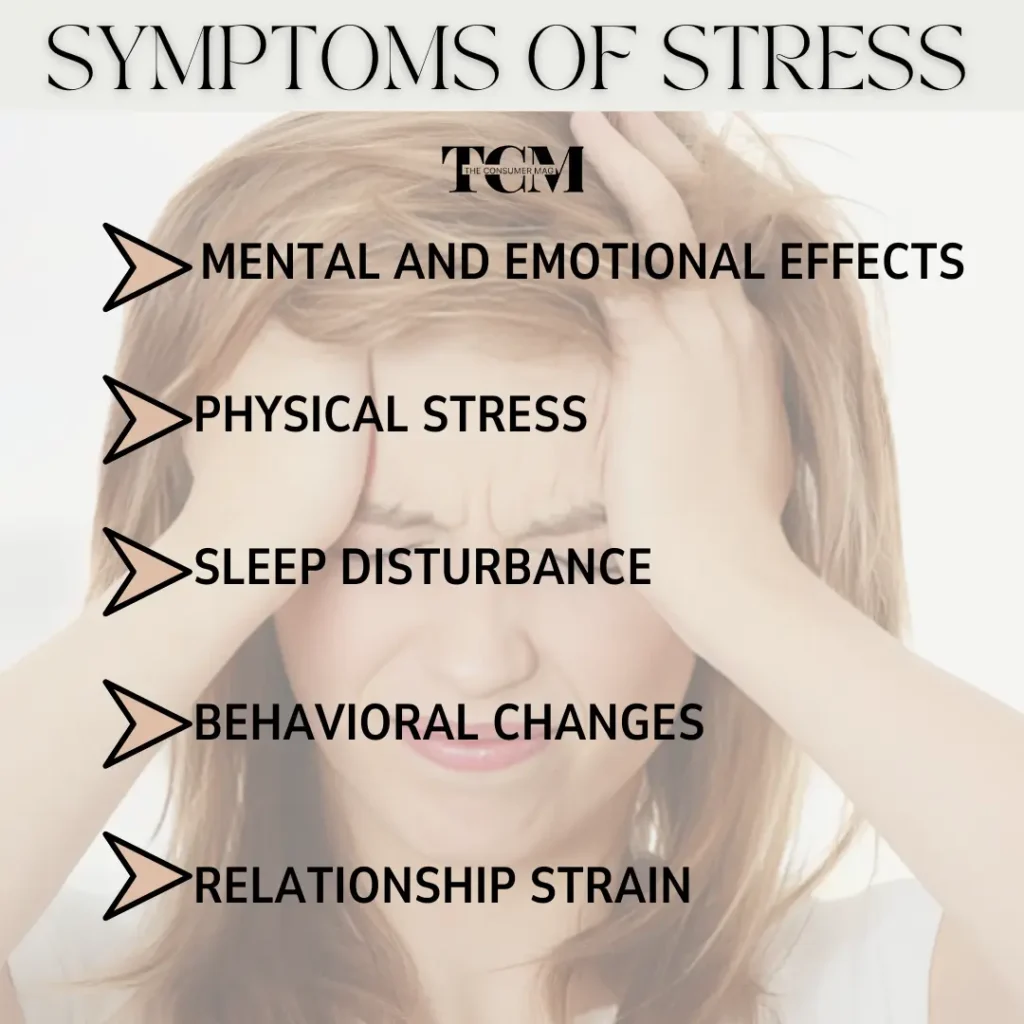
Mental and Emotional effects:
When a person fights with stress for a long time, it leaves an imprint on their mental status.
They can have anxiety, depression, mood swings, difficulty concentrating, etc. on a regular basis. And healing may take a bit of time.
Physical stress:
Stress has numerous ways to affect the body as well. It weakens the immune system and makes the body prone to infections and diseases.
Most of the issues related to stress are related to the heart: cardiovascular problems, high blood pressure, and the risk of stroke.
Stomach ulcers are also included in the huge list of effects stress leaves on your body.
Sleep disturbance:
Stress leads to disturbances in sleeping patterns as well.
Some people start sleeping for longer hours than usual, while others barely get any amount of sleep no matter how badly their bodies need rest.
Behavioral changes:
When people deal with stress, people and socializing feel like a major inconvenience to them, and the first task they do is to avoid socializing and people altogether.
Next, come the random mood swings; people under stress usually stop thinking rationally and get angry and sad on random occasions.
They start overeating or undereating as well; activities they liked are the least interesting to these people now.
Relationship strain:
These behavioral changes and other effects impact a person’s relationship poorly.
Problems start to arise, like communication gaps, conflicts, emotional damage, etc. All this adds to the already-chronic stress and helps deteriorate the condition further.
Now that you understand what stress can do to your body, let’s get to know about these vitamins I was talking about. And how can they help with stress management?
What is the Role of Vitamins in Stress Management?
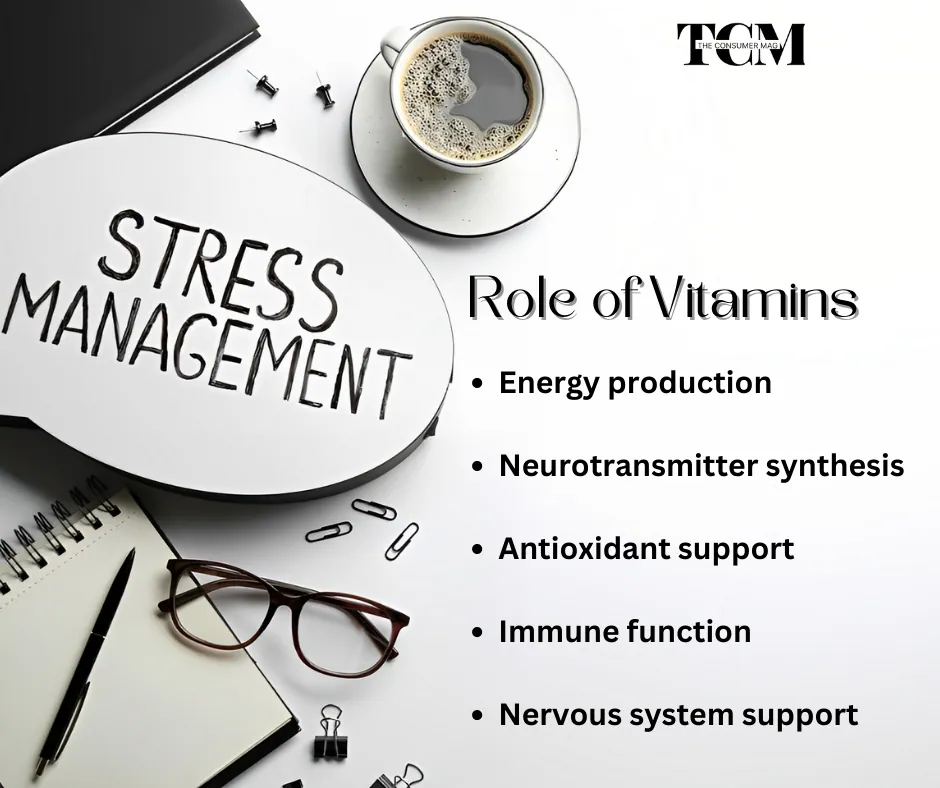
Vitamins play a crucial role in managing stress, although they do not directly affect it; instead, they support the body in fighting against that stress and reduce the effects of stress on the body as much as possible.
Energy production
During stress, the body demands extra energy, and B vitamins like B1, B2, B3, B5, B6, B9, and B12 play a crucial role in converting food into energy.
The right amount of vitamin B can help the body fight fatigue as well as provide an extra set of energy to see past their gloomy stage and find a solution to their stress.
Neurotransmitter synthesis
Vitamins B6 and B12, particularly from the vitamin B family, are highly involved in the production and circulation of neurotransmitters like serotonin, GABA, dopamine, etc.
This helps regulate mood swings and increase positivity. It can alone be the solution to most of the problems faced by the stressed person, including relationship damage in addition to their stress level.
Antioxidant support
When a person is suffering from chronic stress, their body tends to produce a larger number of free radicals.
Free radicals are unsettled molecules that contain unpaired electrons and can cause cellular damage to your body as they are highly reactive. This situation is called oxidative stress.
The best way to reduce free radicals is to bind them with antioxidants, which have the tendency to spare one electron as soon as they can.
This would reduce the instability of the radicals and eliminate the possibility of any sort of damage.
Vitamin C is the best source of antioxidants that a body should consume in adequate quantity for the best results.
Immune function
Vitamins A, C, and D, and a few vitamins B, can help strengthen the immune system. These vitamins improve immune function as well as increase the production of immune cells and antibodies.
So when stress sends a blow to the immune system, it actually leaves as minimal an effect as possible and saves the body from falling ill.
Nervous system support
Some members of the vitamin B family are known for supporting the maintenance of nerve cells and nerve transmission.
They assist in the healthy functioning of the nervous system, which eventually leads to the maintenance of overall well-being. It is also very crucial for stress management and reduction.
What Vitamins Reduce Anxiety and Stress?

There are many vitamins that help reduce anxiety and stress, even if they do not directly fight stress and anxiety. Vitamins play a pivotal role in winning the war against them.
Some of the many vitamins that are stress relievers are mentioned below to provide you with knowledge of how they work.
Vitamin B complex
The vitamin B complex, particularly involving B6, B9, and B12, is very important when it comes to neurotransmitters such as serotonin, dopamine, and GABA.
These play a crucial role in managing mood swings and anxiety.
The right amount of vitamin B can do wonders for your nervous system and balance the chemistry of your brain, especially when you are under stress.
Vitamin D
Studies have proven that a deficiency of vitamin D can be the cause of anxiety and depression. It is a widely considered solution for mood swings, mental well-being, and neurotransmitters as well.
Vitamin C
Vitamin C is an antioxidant that helps relieve oxidative stress, which could be the root cause of anxiety. A sufficient amount of vitamin C can balance mental well-being as well as reduce the symptoms of anxiety.
Magnesium
Minerals like magnesium can also help in recovering from mental disorders like anxiety and stress. Magnesium deficiency is widely known to cause an increase in anxiety. To better this condition, it is advised to consume sources that can fulfill the deficiency of magnesium.
Omega-3 fatty acids
Omega-3 fatty acids are not vitamins, but they consist of elements like EPA and DHA, which are important for their inflammatory properties as well as their potential to support brain health.
Studies have shown omega-3 fatty acids have been successful in reducing anxiety symptoms.
Food Sources of Stress-Relieving Vitamins
To consume all these vitamins that can help you with stress and anxiety, you have to know about their source, which you can include in your balanced diet.
Some of the many sources of food that can give you all those vitamins are listed below to amplify your knowledge.
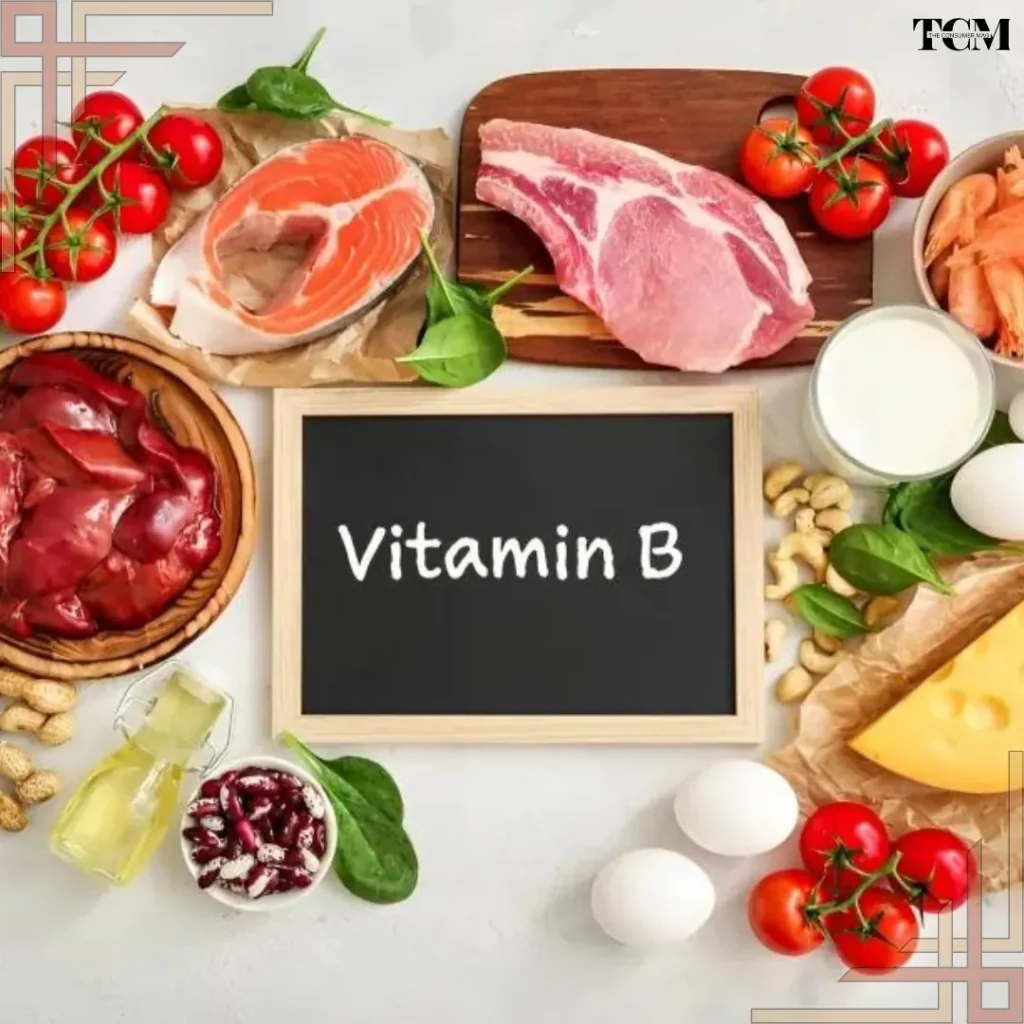
Vitamin B complex
- B1: Whole grains, Nuts, and pork are some of the key sources to eat if you are looking for vitamin B1, i.e., thiamine.
- B2: Leafy green vegetables, dairy products, and lean meats are the best sources of vitamin B2, riboflavin.
- B3: To fulfill the deficiency of B3, Niacin, meat, fish, legumes, and nuts are the best options.
- B5: Also known as pantothenic acid, can be obtained from sources like whole grains, avocados, mushrooms, etc.
- B6: Pyridoxine, or B6, is an important vitamin that can usually be sourced from poultry, fish, Potatoes, and bananas.
- B9: One of the best vitamins to support nerve cell production and deal with anxiety, this can be easily found in legumes, citrus fruits, and legumes.
- B12: Cobalamin, or B12, must be sourced from meat, fish, dairy, or fortified cereals.

Vitamin C
Vitamin C is usually found in citrus fruits like oranges, lemons, and limes or in berries like strawberries, blueberries, raspberries, and blackberries. Fruits like kiwi and vegetables like broccoli, spinach, kale, and Swiss chard are also amazing sources of vitamin C for consumers.
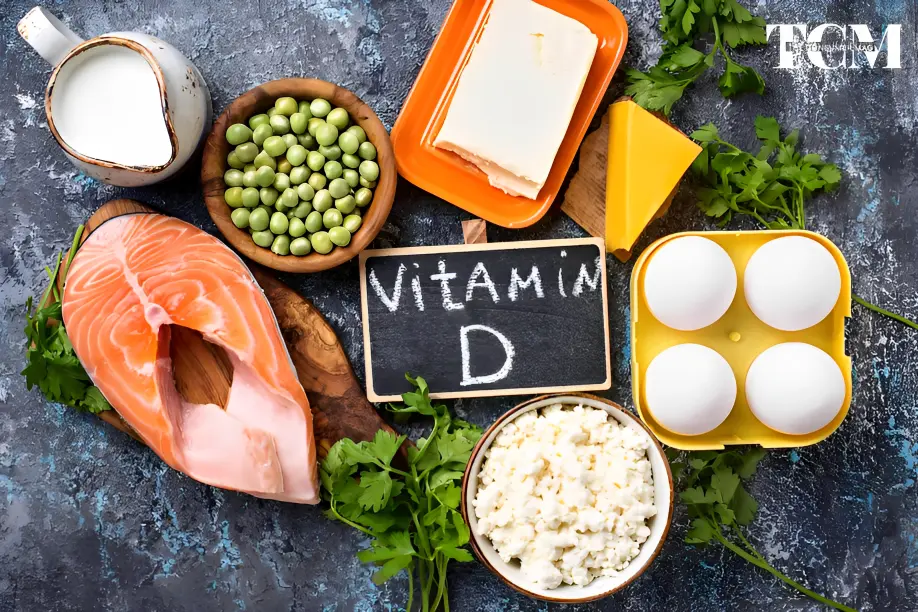
Vitamin D
Fatty fish like salmon, trout, mackerel, and sardines should be your best option when considering sources of vitamin D. Milk, yogurt, cheese, and egg yolks can also be reconstituted.

Magnesium
All the leafy green vegetables like spinach, kale, Swiss chard, and collard greens are perfect for magnesium mineral consumption, along with nuts and seeds like almonds, cashews, and pumpkin seeds.
In fact, Dark chocolate with 70% cocoa content can also be the end of your search for magnesium consumption.

Omega-3 fatty acids
When looking for omega-3 fatty acids, always go for walnuts, flaxseed and chia seeds, and fatty fish; they contain enough omega-3 fatty acids to satisfy your body’s need to fight stress.
Lifestyle Strategies to Manage Stress

Unfortunately, only consuming vitamins cannot fix everything. Modifying your lifestyle with some stress-relieving tips can also bring magnificent results.
And when I say stress-relieving tips, I make sure they are easy, simple, and effortless to use, so you don’t have to do anything extra in your day when it comes to my advice.
Regular exercise
When you exercise, your body releases endorphins, which are also called feel-good hormones.
When you regularly exercise and the neurotransmitter is released, you feel good the whole day and take on less stress.
Prioritize sleep
No matter how busy your schedule is, don’t sacrifice your sleep. Your body needs to rest, and for that, you need to get an adequate amount of sleep.
When you have had enough sleep, you are less likely to take on heavy stress.
Practice relaxation techniques
There are techniques and methods that can be used to reduce stress levels, and regular practice of them can help reduce your tendency to catch stress frequently.
Maintain a healthy diet
Maintain a balanced diet with all the vitamins and minerals we talked about today for all the benefits they can provide you with your anxiety, stress, and other deficiencies.
Time management and organization
Start time management, try reducing the overwhelming feeling as much as possible, and set a proper routine so you do not feel burdened and can easily continue working your day without feeling unnecessary pressure and stress.
Self-care
Take some time out to look out for yourself. Do what you like at that time or any hobby of yours that can help you de-stress and relax.
Small things like this also release the feel-good chemical endorphin inside your body, which can be great when you lead a hectic lifestyle.
Conclusion
This article has taught us what all the symptoms of stress are, what the stress definition signifies, and how we can cope with stress.
There are many more ways to cope with stress, of course, and if you would like an article about that, please let us know in the comment section below.
Now that you have learned so much about stress and stress-relieving techniques you can use in your daily life, including the vitamins that can help your progress, feel free to share your journey and how this article helped you.
Keep your body healthy and your immune system fit to fight stress. Taking vitamins is a small action that can have a great impact on your life, so don’t forget to take your supplement today.
